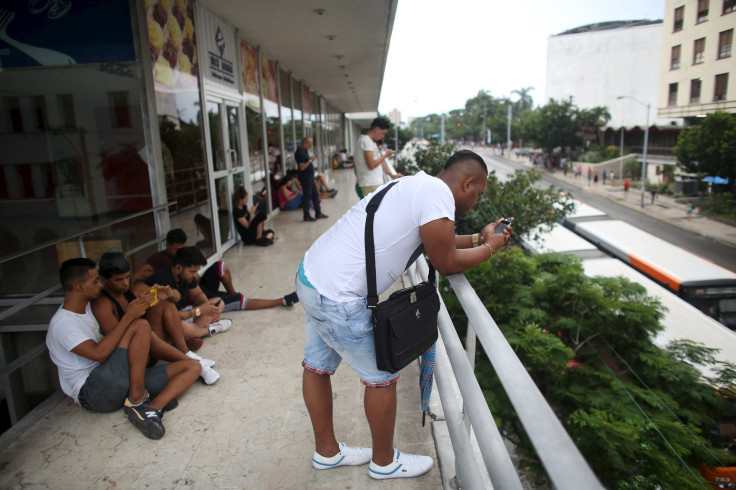Cuba's 35 New Wi-Fi Spots Leaves Young Generation Wanting For More

Cuba is one of the countries with the world's lowest internet penetrations. However, the addition of the 35 new Wi-Fi hotspots in the country since July 2015 has increased its popularity among the nationals, especially the youth. While one person can be seen wearing headphone and talking over the phone, another can be seen holding a laptop across the street.
Even though the government has promised to add more Wi-Fi hotspots in the near future, Cubans are not satisfied with the facility at all. They crave for more and a cheaper internet access for the population of 11 million. In addition, they have started to demand for an internet service which is less restricted.
"Everyone around the world has great Wi-Fi easily available these days. Why not us?" said 20-year-old Ariel Boggiano, in an interview with Reuters. "We need more access, better prices ... And there are too many restrictions when you are surfing. There's not good access to news. And there's too much demand, it gets saturated fast."
Reportedly, Boggiano had been speaking to his uncle in Las Vegas since the last one hour with the help of an app, a $2 card and free Wi-Fi.
Boggiano is not alone in Cuba. There are a lot of Cubans who believe the same. The United States, on the other hand, seems pretty keen to offer better internet services to the Cuba nationals, in the wake of easing out some of the 50-year-old trade restrictions in the U.S.
Even though the U.S. has eased out some of its embargoed trade policies to let American companies sell internet facilities to Cubans, and has already declared “development of Cuba's internet” as one of its priorities, the Cuban government plans to proceed at its own pace.
The Cuban government blames the cost and lack of investment in internal infrastructure as the main reason for why they do not want to provide the internet services readily. However, the critics suggest that it is the fear of the emergence of new political opposition and losing control over the media that is holding back the government.
© Copyright IBTimes 2024. All rights reserved.





















